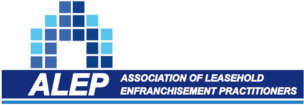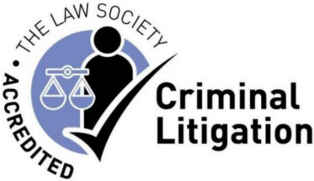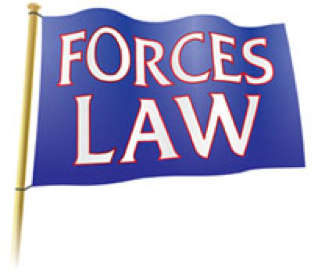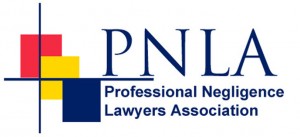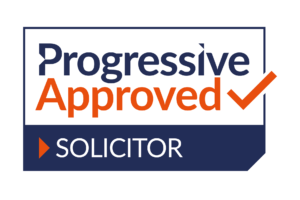Solicitors Who Specialise In Resolving Disagreements Between Directors
Any business relies on strong leadership, and in a business where there are multiple shareholders or directors it’s vital that the directors have a strong relationship, pull together in the same direction and form a unit which will help to manage and direct the business. As result, a director dispute can be incredibly damaging to the company.
When a relationship between directors breaks down, it can have a negative impact on the company and even its employees, so it’s important to resolve these kind of business disputes as quickly as possible.
If things get to the point where an agreement cannot be reached, the company might decide to go down the route of removing a director. Be warned. This can be a very difficult process and can only be done under certain circumstances. That’s why getting the right legal advice from specialist director dispute solicitors is vital before getting started.
Involved in a director dispute? Find out where you really stand – for FREE initial legal advice simply call our highly experienced Dispute Solicitors now on FREEPHONE 0800 1404544 or Salisbury 01722 422300.
Your Director Dispute – How Our Solicitors Can Help You
Our team can help you with a full range of solutions to your dispute – from alternative dispute resolution to emergency commercial injunctions.
Our team can;
- Provide FREE initial advice on the phone on FREEPHONE 0800 1404544
- Provide, where possible, an initial view on the strength of your position.
- Investigate your position further with a view to giving you more substantial advice on your chances of success.
- Explain your options
- Provide a one-stop shop. If tax or accountancy issues are at the core of your dispute, you might want to use your own accountant. However as an alternative, we have, as part of our extended team, a highly experienced and fully qualified accountant who works closely alongside our commercial team to provide a seamless service to clients.
- Represent you throughout the dispute – from early negotiations, to mediation, if possible – and, if an agreed settlement is not possible, advice and representation through any court proceedings.
- We regularly represent clients both locally to our offices in Wiltshire and Hampshire and nationwide. Worried about a Directors Dispute? Call now for FREE initial phone advice
A lengthy and protracted director dispute can be very damaging to any business, so achieving an agreement quickly and effectively can be vital to your future success and the security of the company and its employees.
Rest assured that our team have the experience you need. If you are engaged in a dispute with another director of your company, our team of specialist business dispute lawyers can help you to resolve your dispute in a way which suits all parties involved.
Sacking a director – (1) Removal from the board
The first step would be to remove the director from the board. This should be relatively straightforward if you follow the right process and have a sufficient number of shareholders to support you.
Among the steps you need to take are calling a shareholders’ meeting, giving the right notice to all shareholders and to the director you intend to remove, and passing a resolution to remove that director.
Sacking a director – (2) Terminating their employment
Although it’s not always the case, it’s quite common for directors to also be an employee.
Bear in mind that any employed director will have all the protection any other employee would have, and may have additional rights in their director service contract.
So even if you have successfully removed a director on the board, if they are also employee, you will need to go through the correct procedure to terminate their employment as well. Unless you’re very confident, or have your own experienced HR department, you’re going to need the advice of a specialist employment lawyer to ensure this process is carried out correctly.
Sacking a director – (3) Retrieving the director’s shares
If the director has shares, then in addition to removing them from the board and terminating their service contract, you may also wish to try to get their shares back.
Again the director should have the same rights as any other shareholder. It may prove very difficult or impossible to get those shares back if negotiation fails – unless the shareholders agreement or service contract allows you to do so once they have been removed from the board and been sacked as an employee.
NB if the director in question doesn’t have service or employment contract, then there are certain statutory provisions regarding their removal.
What happens when a director is also a shareholder and an employee?
Any director dispute can get really complicated because if the director is also an employee, then they will have the additional protection of employment rights. So you are really going to need the help of a specialist business solicitor to examine your situation in detail and confirm whether or not you will also have grounds for removing the director as a shareholder and employee.
If this is not possible, you might have to reconsider your decision to remove them as a director, too, and weigh up the potential ramifications of having the person stay on as an employee and shareholder.
Click here to read more about shareholder disputes
Common causes of director disputes
Disputes between two or more directors can happen for a wide range of reasons, but some of the most common causes of director disputes include:
• Breach of duties as a director — Every company director has a number of legally binding duties, which they must carry out in order to comply with the law.
These include acting in the best interests of the company, avoidance of conflicts of interest, maintaining confidentiality and working for the success of the company. This is a complicated area and what constitutes a breach of duties can vary wildly between different companies.
• Direction, management and strategy — In companies where there are multiple directors, it’s not unusual that one or more will disagree with the general direction, management and strategy at some point.
It can sometimes help if disagreements are discussed openly – but it’s also vital that they do not spill over into arguments or long-term disagreements, or serious disputes and divisions can arise.
• Dividends and payments — Money tends to cause more arguments than most other things in all walks of life, and operating a business is no different.
With directors potentially entitled to dividends, there may be disagreement as to the value of the dividends being issued to directors. This can become particularly complicated when directors are also shareholders and salaried employees, and especially so if other directors are not.
Directors who receive a salary, for example, might not be as keen to distribute dividends as are those directors who are not paid a salary.
In addition, differences in the contributions each director makes the business can often form the basis of disputes – if there is a feeling that one or more are getting more out of the business than they deserve.
• Exclusion from meetings — If there are large numbers of shareholders or directors in the business, it’s usually not very practical to invite them all to every meeting. This can disgruntle some directors, who might feel excluded and aggrieved, potentially triggering a dispute which can spill over into other areas of the business.
If becomes clear that a resolution to your dispute is not going to happen without external help, make sure you get in touch with a business lawyer who specialises in disputes between directors.
NB If the dispute involve a breach of the director’s legal duties, they can sometimes end up with an application for a director to be disqualified.
Click here to read more about Director Disqualification Orders
The removal of a Company Director by Shareholders
There are a number of reasons why shareholders could want to remove a director – and a number of ways in which they can do it.
In particular, there are a number of circumstances which, under the company’s Articles of Association, require a director’s immediate removal. These include:
• A director being disqualified – or ‘struck off’ — When a serious breach of the law has happened and a director has disqualified from being a director of any company, this gives the shareholders a clear mandate to remove the director. The process is still not necessarily straightforward, though, and must be carried out swiftly and properly.
• A director receiving a bankruptcy order — This is not a breach of the law, but civil action which can bar a person from being a company director. Again, the shareholders should have a clear mandate to remove the person as a director with immediate effect.
• The director becomes physically or mentally incapable — If the director’s doctor writes to the company and states his or her opinion that the director is not medically capable of carrying out his or her duties, this may give grounds for the director’s removal. This is a delicate area which must be handled with care.The director may they have grounds for a successful claim against the company company if proper care is not taken.
• The director voluntarily resigns from the board — Technically, this still requires the shareholders to agree removal of the director. In cases where a serious breakdown in relations occurs, the director may choose to resign from the board and put the dispute behind them by terminating their involvement with the company as a director.
Removing a director – getting the procedure right
The removal of a director by a company’s shareholders can be a complicated procedure, and needs to be handled carefully in order to mitigate the chance of a backlash by the departing director or a legal challenge being raised which could have a potentially devastating impact on the business.
If this happens, the whole process could turn out to be counterproductive, so it needs careful consideration and making sure you get the right legal advice.
The importance of early legal advice
Getting that specialist legal advice on these type of company disputes at an early stage can help directors to come to an agreement, particularly if it becomes clear that one party is in breach of their contract or could find themselves in legal difficulties if they continue on their current path.
How to resolve your director dispute
The first step is to look at the company’s legal paperwork, and in particular the following documents if they are available.
1. The articles of association of the company.
2. The director’s service agreement
3. Any shareholders agreement
Having the right written legal documentation in place from the outset, clearly setting out the various parties’ rights and responsibilities, is one of the best ways of avoiding company disputes in the first place.
Is mediation possible?
Most of the time, director disputes can be overcome and some common ground can be found to help everybody move on for the good of the company and its employees.
The first step is usually a calm conversation in which both parties put forward their side of the argument in a reasoned manner, so both parties understand the viewpoint of the other.
However if that fails, then one way to resolve the dispute may be to go through the mediation process.
Mediation take places with an independent mediator. The mediator will attempt to find some common ground on which all parties can agree, which will usually mean that both parties feel some progress has been made. Often, grievances can be very quickly overcome using mediation, with the result being that all parties are able to move on and put their differences behind them.
If mediation is possible, then it is usually to be recommended as a possible way to resolve the dispute – as it will usually result in swifter settlement and potentially significant savings on unnecessary legal costs.
If mediation is unsuccessful and your specialist business lawyer thinks you may have a legal case, you may need a court application.
In cases where a director has breached the terms of their, for example,, there are steps which can be taken in order to remove somebody as a director. This can be a lengthy and protracted process.
Your Director Dispute – what happens if there is a deadlock?
Deadlocks between directors or shareholders can be particularly damaging.
A deadlock occurs where decision-making is equally split, and there is no provision in the company arrangements to break that deadlock. It’s common in small companies with just two directors both own 50% of shares, and also in joint venture arrangements, where each of the companies forming joint venture own an equal number of shares.
The director – as an employee and shareholder
Sacking a director does not automatically stop the person from being a shareholder or employee of the company. There are separate processes which must be carried out in order to remove a shareholder or employee, and they may not be covered by the same reasons the company had for removing the person as a director. As a result, the former director may be perfectly entitled to stay on as a shareholder or employee and receive dividends and a salary.
Removing a director – the need to notify Companies House
If the company does remove a director, Companies House must be notified. This is a relatively simply process, but is a vital part of the process to ensure that the director’s removal is properly logged with Companies House as it is a legal obligation on the company to report any appointments or removals of directors.
Your Director Dispute – the need for specialist legal advice
Disagreements arising between directors, or between one or more director and the remaining shareholders usually involve a range of complex legal issues.
That is not least because directors may play a number of roles in your company – not only as directors but also potentially as employees and shareholders too. This can create significant complications – and that’s why you need specialist solicitors who understand these areas of law.
To begin the process of dispute resolution, contact our team today to discuss your dispute and see how we can help you.
Our specialist commercial disputes team always offer FREE initial advice over the phone.
So whether you are an individual director or shareholder, or you represent the company as a whole, we can help.

